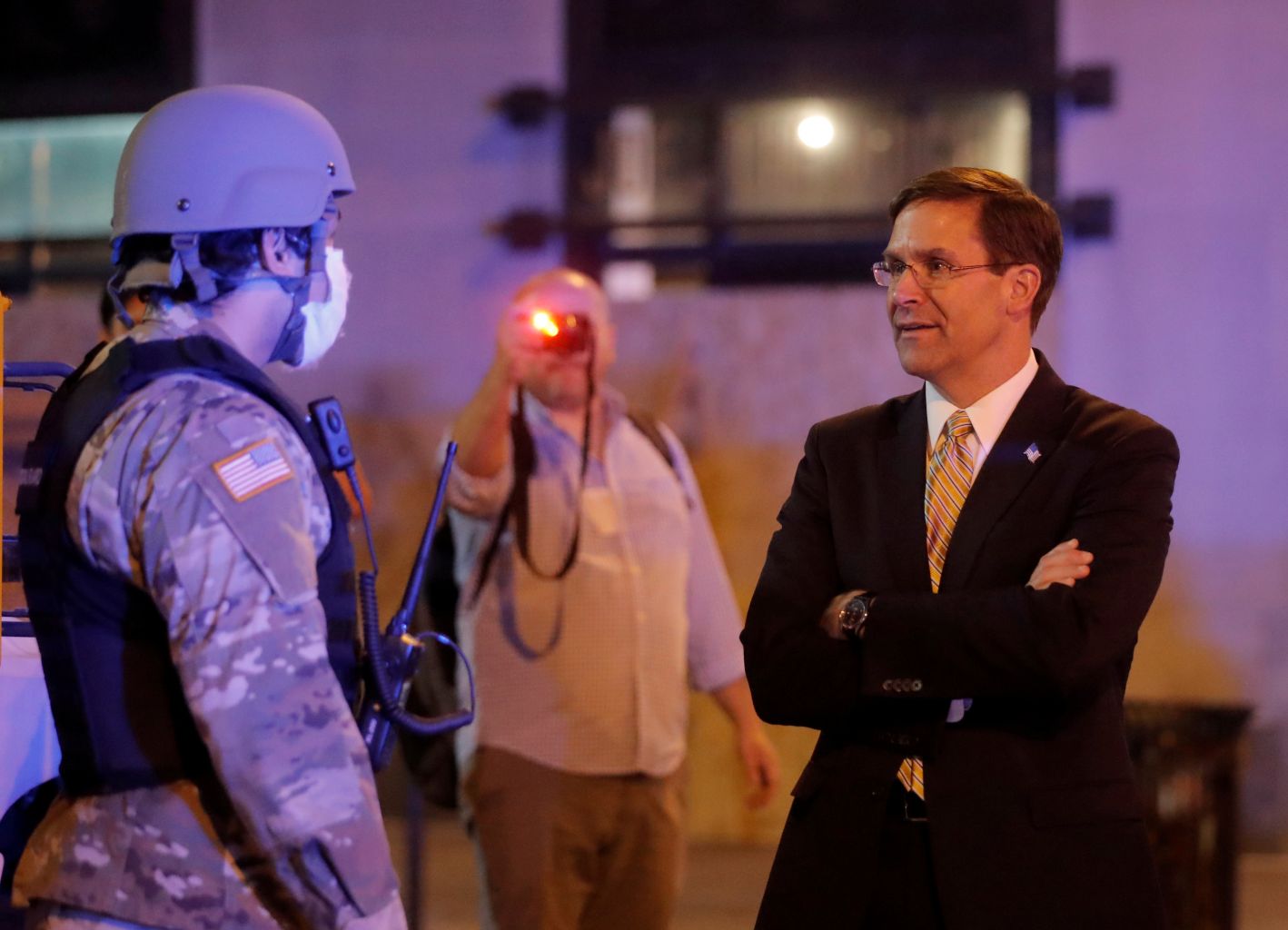US defence chief Mark Esper opposes deploying troops to quell protests, despite Trump threats
Sign up now: Get ST's newsletters delivered to your inbox

Esper visits National Guard military officers guarding the White House amid nationwide unrest, June 1, 2020.
PHOTO: REUTERS
WASHINGTON (REUTERS, BLOOMBERG) - US Defence Secretary Mark Esper said on Wednesday (June 3) he does not support invoking the Insurrection Act to deploy active-duty forces to quell civil unrest for now, despite President Donald Trump's threats to militarise America's response to mass protests.
Trump said this week he could use military forces in states that fail to crack down on sometimes violent protests over the killing of George Floyd, an unarmed black man, at the hands of a white police officer in Minneapolis.
"The option to use active-duty forces in a law enforcement role should only be used as a matter of last resort and only in the most urgent and dire of situations. We are not in one of those situations now," Esper told a news briefing.
"I do not support invoking the Insurrection Act."
Esper's news conference did not go over well with either the president or his top aides, an administration official said, speaking on the condition of anonymity.
Trump confronted Esper, after the Pentagon chief publicly opposed the idea of deploying the military to contain protests, according to people familiar with the matter.
Separately, the president later asked top advisers if they thought Esper could still be effective in his position, two people familiar with the discussions said on Wednesday night.
At a news conference in the afternoon, the president's press secretary, Kayleigh McEnany, tiptoed around whether Esper's job was safe, saying only that he remained in his post.
Neither the White House nor the Pentagon immediately responded to requests for comment on Wednesday night.
To deploy the military on US soil for law enforcement purposes, Trump would need to invoke the 1807 Insurrection Act - something last done in 1992 in response to the Rodney King riots in Los Angeles.
The military has pre-positioned 1,600 active duty forces on the outskirts of Washington DC, to deploy if needed.
A US official said that the Army on Wednesday had been told of a decision to send some of the active duty troops back to their home base, but Esper reversed course following a meeting at the White House and discussions at the Pentagon.
Esper said he regretted using the term "battlespace" this week to describe areas gripped by protests.
"In retrospect, I would use different wording so as not to distract from the more important matters at hand or allow some to suggest that we are militarising the issue," he said.
Trump's threats to deploy active duty troops - even in states that oppose its use to address civil unrest - has stirred alarm within the US military and in Congress, where a top Republican warned it could easily make troops "political pawns."
Esper said he was unaware that he would be part of Trump's politically charged photo opportunity on Monday, when law enforcement forcibly cleared a park outside the White House of peaceful protesters so that the president could take a picture in front of a church holding a Bible.
He acknowledged the difficulty of deploying the military without entering the political fray.
"I work very hard to keep the department out of politics, which is very hard these days as we move closer and closer to an election," Esper said.
Retired Navy Admiral Mike Mullen, the former chairman of the Joint Chiefs of Staff, said he was "sickened" to see how law enforcement - including the National Guard - had cleared the area and warned against over-use of the US military.
"Our fellow citizens are not the enemy, and must never become so," Mullen wrote.


